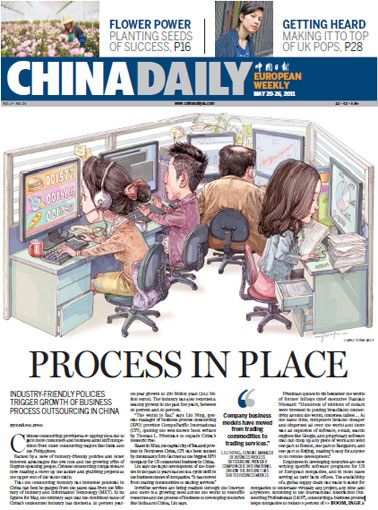Web Comments
New drunk driving law shouldn't be watered down
Updated: 2011-05-19 16:28
By Patrick Mattimore (chinadaily.com.cn)
There has been controversy recently about the new drunk driving law that went into effect May 1. The law has increased penalties for drivers whose blood alcohol content (BAC) is above 80 milligrams of alcohol per 100 milliliters of alcohol, the level at which drivers are considered drunk. The amended Criminal Law stipulates that all drunk driving incidents are considered criminal offenses, even if the act of drunk driving itself does not result in a traffic accident.
| ||||
Zhang's pronouncement takes the teeth out of the needed law. The hazardous behavior occurs when someone gets into a car and drives drunk, thereby endangering the rest of us.
Most countries have taken steps to minimize the potential harm that can result from drunken driving by setting maximum legally permissible Blood Alcohol Content (BAC) levels for drivers.
In addition to having laws prohibiting driving with specific BAC levels, many jurisdictions also have laws that more generally prohibit driving under the influence (DUI) of alcohol. DUI is when one's mental or physical faculties are impaired to such a degree that one can no longer drive with the cautioned characteristic of a sober person under similar conditions.
The reason to include a more general driving under the influence law is because people's tolerance for alcohol is different and, a person with a relatively low BAC, may nevertheless be a danger on the road. In any event, the maximum BAC levels China has established are a recognition that, regardless of tolerance, everyone is impaired when they reach a certain BAC.
Alcohol consumption impairs reaction time in a dose-dependent manner: The more alcohol a person drinks, the slower his or her reaction time becomes. Drivers who are under the influence perform poorly on divided attention tasks and their inability to make quick decisions increases the likelihood of involvement in road traffic crashes.
Figures from the Ministry of Public Security indicate that approximately 3,500 people have been killed and 9,000 people injured each of the last five years in drunken-driving cases. Police apprehended more than half a million drunk drivers last year, a 68 percent increase from 2009.
Under the old law, those drivers involved in incidents with no serious consequences were only subject to administrative or civil penalties. Zhang's directive waters down the new law and essentially reinstates the old law.
Citizens shouldn't have to wait until drunk drivers cause serious bodily harm before those drivers are taken off the road and punished criminally. Laws against drunk driving are in force to protect the rest of us who are not operating cars when we are drunk. Making drunk drivers understand that they will be subject to criminal penalties regardless of whether they have an accident or not, will make everyone more responsible about insisting that people who have had too much to drink, not drive.
Patrick Mattimore is a former California prosecutor and an adjunct law instructor in the Temple University/Tsinghua University LLM program in Beijing. The views expressed here do not necessarily reflect those of the China Daily website.
E-paper

Thawing out
After a deep freeze in sales during the recession, China’s air conditioner makers are bouncing back
Cool Iron lady
Of good and evil
Build on security initiatives
Specials

The song dynasty
There are MORE THAN 300 types of Chinese operas but two POPULAR varieties are major standouts

Cut above the rest
One of the world's oldest surgeons has performed more than 14,000 operations

From the ground up
Architect of Guangzhou Opera House has many projects under way, including 2012 Olympics.




